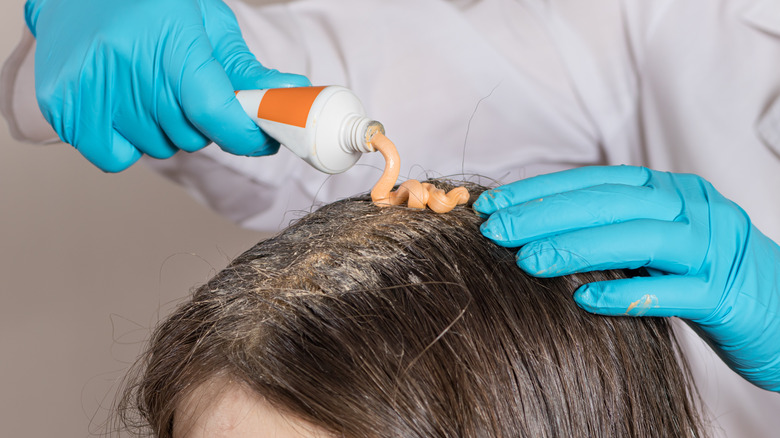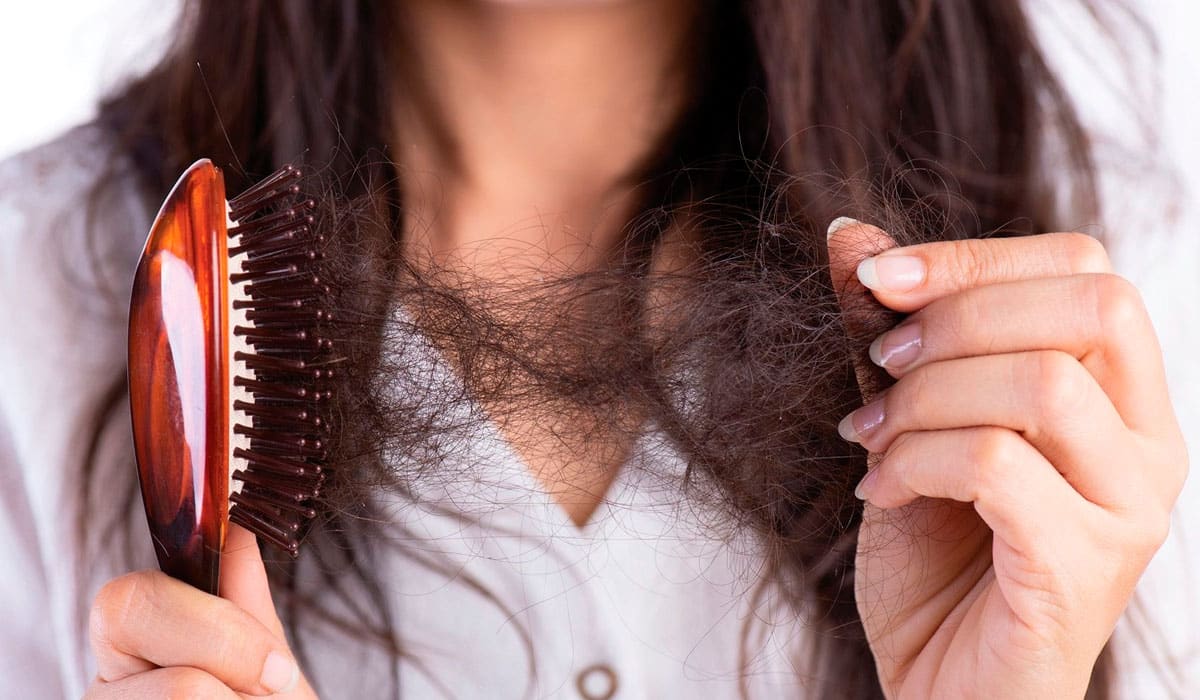Hair loss can be a distressing experience, especially when it’s unexpected and linked to something as common as taking family planning pills. For many women, hormonal birth control provides convenience, reliability, and peace of mind. However, some may experience unwanted side effects, including hair thinning or excessive shedding.
Not everyone who uses birth control pills will face hair loss, but it can occur due to the way synthetic hormones affect the body’s natural hair growth cycle. If you’ve started noticing more hair in your brush or on your pillow after beginning, changing, or stopping birth control pills, you’re not alone. The good news is that there are steps you can take to understand and manage the issue.
Recommended: Hair Fall After Pregnancy Home Remedy
In this blog post, we’ll look at why hormonal contraceptives can cause hair loss, how to identify if your hair loss is related to birth control, and what you can do to reduce or reverse it.
Why Family Planning Pills Can Cause Hair Loss

Family planning pills affect hormone levels in the body to prevent pregnancy. These hormonal shifts can influence the natural hair growth cycle, sometimes leading to increased shedding or thinning. While not everyone experiences this side effect, it’s a known response in some women.
Hair grows in cycles, including a growing phase and a shedding phase. Hormonal changes from starting, switching, or stopping the pill can disrupt this cycle and push more hairs into the shedding phase, a condition known as telogen effluvium. This type of hair loss is usually temporary.
Recommended: 7 Best Supplements for Postpartum Hair Loss
Some types of birth control pills contain progestins with androgenic properties, which can mimic male hormones. In women who are sensitive to these hormones, this may trigger thinning, especially around the hairline or crown. A family history of hair loss may increase this risk.
Hair loss can also occur after stopping the pill, as the body readjusts to its natural hormone levels. This post-pill shedding is common and often improves within a few months. Understanding the cause can help guide the right steps toward treatment or prevention.
Is Hair Loss from Birth Control Permanent?
Hair loss caused by birth control is usually not permanent, especially if it is related to changes in hormone levels. Many people experience a type of temporary hair shedding called telogen effluvium, which can occur when the body adjusts to new hormone levels after starting or stopping birth control pills. This type of hair loss typically resolves on its own within a few months as the body finds a new hormonal balance. In most cases, once the hormonal fluctuations stabilize, the hair growth cycle returns to normal and regrowth begins.
However, for individuals who are genetically predisposed to hair thinning or have underlying conditions such as androgenic alopecia, birth control may trigger more noticeable or longer-lasting hair loss. If hair thinning continues for several months or becomes more severe, it is important to consult a healthcare provider. They can help determine whether the hair loss is related to the contraceptive method or if another issue is contributing. Early intervention often leads to better outcomes and helps prevent further loss.
Recommended: Best Brush for Postpartum Hair Loss
Identifying If Your Hair Loss Is Due to Birth Control
Hair loss linked to birth control often starts a few weeks to a few months after beginning or stopping the pills. This is usually due to hormonal changes that disrupt the hair growth cycle, causing more strands to enter the shedding phase. If you notice sudden or increased hair fall without any other clear reason, and it lines up with changes in your contraceptive use, it may be related.

The hair loss is usually diffuse, meaning it thins evenly across the scalp rather than in patches. This is a common sign of telogen effluvium, a temporary form of hair shedding often triggered by hormonal shifts. You might notice more hair coming out when brushing, washing, or even on your pillow.
To confirm whether birth control is the cause, consider other potential triggers such as recent stress, illness, weight changes, or nutritional deficiencies. Keeping a journal of when the hair loss began and noting any lifestyle or medication changes can help you and your doctor identify patterns.
Recommended: Does Birth Control Pills Make You Sleepy?
A healthcare provider can perform blood tests to check hormone levels, thyroid function, and nutrient deficiencies. If necessary, they may refer you to a dermatologist or trichologist for a closer look at your scalp and hair follicles. Early evaluation can help pinpoint the cause and guide you toward the right treatment.
Switching Birth Control Pills
If you suspect that your birth control pills are contributing to hair loss, the first step is to consult with your healthcare provider before making any changes. They can help determine whether your current pill’s hormone levels might be affecting your hair and discuss alternative options that may be gentler on your hair health. Switching to a low-androgen or non-hormonal contraceptive method could reduce the risk of further hair thinning while still providing effective pregnancy prevention.
When switching birth control pills, it’s important to be patient. Hormonal adjustments can take time, and it might be several months before you notice any improvement in hair shedding or texture. Keeping track of changes during this period can be helpful for both you and your doctor to assess how your body is responding to the new medication. It’s also crucial to avoid stopping or switching pills abruptly without medical advice, as this can cause further hormonal imbalances and potentially worsen hair loss.
Recommended: What Are Common Side Effects People Experience When Switching Between Combined Birth Control Pill and Mini Pill?
In some cases, your healthcare provider may suggest exploring non-pill contraceptive methods, such as hormonal or non-hormonal intrauterine devices (IUDs), patches, or barrier methods. These alternatives might offer fewer hormonal side effects while still providing effective birth control. Ultimately, working closely with your doctor ensures you find a method that supports both your reproductive health and your hair’s wellbeing.
When to See a Dermatologist or Trichologist
- See a specialist if your hair loss continues for more than three months without improvement.
- If you notice sudden, patchy, or excessive shedding, it’s important to get a professional evaluation.
- Consult a dermatologist or trichologist if you have a family history of hair thinning or baldness.
- Make an appointment if your scalp feels itchy, painful, inflamed, or shows signs of infection.
- If over-the-counter treatments or natural remedies aren’t working, a specialist can provide stronger or more targeted options.
- Visit a doctor if you’re experiencing hair loss alongside other symptoms like fatigue, hormonal changes, or irregular periods.
Natural Remedies and Lifestyle Tips

- Try regular scalp massages to stimulate blood flow and encourage hair growth.
- Use natural oils like rosemary or peppermint oil, diluted with a carrier oil such as coconut or jojoba oil.
- Avoid frequent heat styling, chemical treatments, and tight hairstyles that strain the hair.
- Follow a protein-rich diet with plenty of iron, zinc, biotin, and omega-3 fatty acids to support healthy hair.
- Stay well-hydrated throughout the day to keep your scalp and hair follicles healthy.
- Practice stress management techniques like meditation, deep breathing, or yoga to reduce stress-related hair loss.
- Prioritize getting 7 to 9 hours of quality sleep each night to support hormone balance and hair health.
- Avoid smoking and limit alcohol consumption, as both can negatively affect hair growth.
- Consider natural supplements such as biotin, vitamin D, iron, or saw palmetto, but consult a healthcare provider first.
Conclusion
Hair loss related to family planning pills can be distressing, but understanding the causes and available options can help you manage and often reverse the effects. Whether it’s adjusting your birth control method, supporting your hair with proper nutrition and care, or exploring medical treatments, there are many strategies to promote healthier hair growth.
If hair loss persists or worsens, seeking professional advice from a healthcare provider or specialist is important to address any underlying issues. With the right approach and patience, you can regain confidence and maintain both your reproductive health and hair wellbeing.
